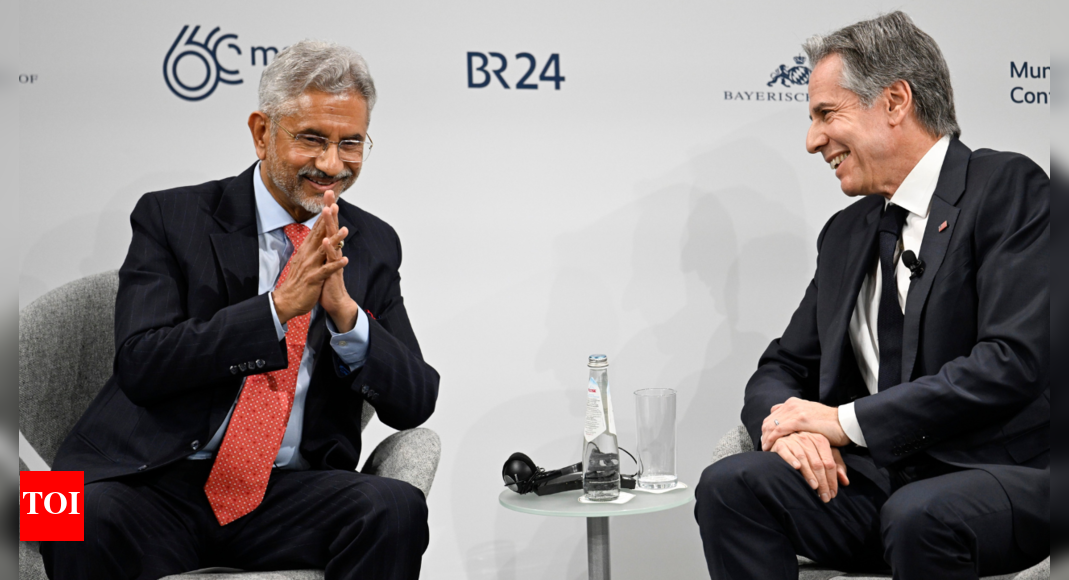Rubio's De-escalation Push: India Reasserts Demand For Justice

Table of Contents
Senator Rubio's De-escalation Efforts and Their Implications
Rubio's Stance and Proposed Solutions
Senator Rubio, a prominent figure in US foreign policy, has voiced concerns about the escalating tensions between India and China. His proposed solutions aim to prevent further conflict and stabilize the volatile situation in the Himalayas. His approach focuses primarily on:
- Diplomatic engagement: Encouraging direct dialogue and negotiations between New Delhi and Beijing, potentially through facilitated talks involving the US.
- Economic incentives: Exploring ways to incentivize both countries to de-escalate, potentially using trade and investment as leverage.
- Strengthening regional alliances: Reinforcing partnerships with other regional players to promote stability and deter further aggression.
The rationale behind Rubio's approach centers on preventing a wider conflict with potentially catastrophic consequences. However, the drawbacks include the potential for overlooking India's legitimate security concerns and potentially pressuring India into compromises that undermine its national interests. These de-escalation strategies must carefully balance the need for peace with the imperative of upholding international law and preventing future transgressions. Effective conflict resolution requires a nuanced understanding of the issues at stake, including the complexities of India-China relations and the broader context of US foreign policy.
Potential Impacts of De-escalation on India's Position
Rubio's push for de-escalation presents significant challenges for India. The potential impacts on India's pursuit of justice include:
- Pressure to compromise on territorial claims: India might face pressure to downplay its territorial claims or accept a less satisfactory resolution to the conflict.
- Dilution of accountability: A hasty de-escalation might prevent thorough investigation and accountability for the actions that led to the Galwan Valley clash.
- Diplomatic isolation: If India is perceived as obstructing de-escalation efforts, it could face diplomatic isolation, impacting its strategic partnerships.
These potential consequences highlight the delicate balance India must strike between maintaining peace and upholding its principles of justice and accountability. The preservation of India's national security and its territorial integrity are paramount concerns that cannot be easily sacrificed for the sake of de-escalation. Understanding the nuances of diplomatic pressure and its potential ramifications is crucial in assessing the feasibility and implications of Rubio's proposals.
India's Insistence on Accountability and Justice
India's Perspective on the Conflict
India's official position emphasizes the need for accountability for the actions that led to the Galwan Valley clash. This position stems from:
- Violation of sovereignty: India views the incursion and violent clash as a clear violation of its Indian sovereignty and territorial integrity.
- Loss of soldiers: The significant loss of Indian soldiers during the clash has fueled the demand for justice and retribution.
- Protection of national interests: Maintaining its territorial integrity and upholding its national security interests are vital for India's geopolitical standing.
India's demands include a thorough investigation into the events, acknowledgment of responsibility by China, and appropriate redress for the losses suffered. These demands are rooted in historical context and reflect India's commitment to protecting its national interests and upholding international law. The conflict is not just about a border skirmish; it represents a broader challenge to India's security and its position in the region.
Obstacles to Reaching a Compromise
Reconciling India's demand for justice with the US's push for de-escalation presents significant obstacles:
- Differing definitions of justice: The US prioritizes de-escalation to prevent further conflict, while India emphasizes accountability and justice for past transgressions.
- Trust deficit: The deep mistrust between India and China makes any compromise difficult to achieve.
- Domestic political considerations: Both countries face domestic political pressures that can hinder compromise.
These differing perspectives on justice and reconciliation, coupled with the existing geopolitical tensions, create a complex negotiation process. Overcoming these bilateral relations challenges requires significant diplomatic efforts and a willingness from both sides to find common ground, while acknowledging the importance of compromise and concessions.
The Geopolitical Context and International Implications
Global Power Dynamics and the India-China Relationship
The conflict between India and China unfolds within a broader context of great power competition. The rivalry between India and China is a key aspect of this competition, impacting:
- Regional alliances: The conflict influences the dynamics of regional alliances and partnerships.
- Global supply chains: Disruptions to trade and economic relations impact global supply chains.
- Strategic partnerships: Countries are re-evaluating their strategic partnerships in light of the India-China dynamic.
The situation underscores the complexities of regional security and its entanglement with global power dynamics. The international relations surrounding this issue are multifaceted and require careful analysis to understand the broader implications of the ongoing geopolitical strategy plays.
The Role of International Law and Norms
International law and established norms play a crucial role in addressing the conflict:
- International Humanitarian Law (IHL): The principles of IHL regarding the conduct of hostilities are relevant.
- State responsibility: International law principles regarding state responsibility for breaches of international law are applicable.
- Dispute resolution mechanisms: Existing mechanisms for peaceful dispute resolution should be explored.
The application of international humanitarian law, the concept of state responsibility, and effective dispute resolution mechanisms are critical for achieving a just and lasting solution. The role of international pressure, exerted through multilateral forums and diplomatic channels, cannot be overlooked in influencing the behavior of both states and encouraging compliance with international norms.
Conclusion: Rubio's De-escalation Push: India Reasserts Demand for Justice
This article has examined the complexities of "Rubio's De-escalation Push: India Reasserts Demand for Justice," highlighting the inherent tension between the US's desire for de-escalation and India's insistence on accountability for the Galwan Valley clash. India's demand for justice, rooted in its national security concerns and principles of accountability for aggression, poses a significant challenge to Senator Rubio's efforts. The geopolitical context, global power dynamics, and the relevance of international law further complicate this delicate situation.
Key takeaways include the necessity of understanding the differing perspectives on justice and the importance of addressing India's legitimate security concerns. A sustainable solution requires a nuanced approach that balances de-escalation efforts with the need for justice and accountability.
To better understand this multifaceted issue, we encourage readers to engage with further resources on the Galwan Valley clash, Senator Rubio's foreign policy stances, and the intricacies of India-China relations. Understanding the nuances of "Rubio's de-escalation push" and the complexities of India's pursuit of justice is crucial for navigating this critical geopolitical challenge.

Featured Posts
-
 Balsillie Owned Golf Company To Develop Luxury Resorts In The Middle East With Saudi Partner
May 02, 2025
Balsillie Owned Golf Company To Develop Luxury Resorts In The Middle East With Saudi Partner
May 02, 2025 -
 Voyage A Velo Trois Jeunes Du Bocage Ornais Relevent Un Defi De 8000 Km
May 02, 2025
Voyage A Velo Trois Jeunes Du Bocage Ornais Relevent Un Defi De 8000 Km
May 02, 2025 -
 Great Yarmouth Public Opinion Divided On Rupert Lowe Controversy
May 02, 2025
Great Yarmouth Public Opinion Divided On Rupert Lowe Controversy
May 02, 2025 -
 Tuerkiye Endonezya Ortak Anlasmalari Detayli Bilgi
May 02, 2025
Tuerkiye Endonezya Ortak Anlasmalari Detayli Bilgi
May 02, 2025 -
 Jnwby Ayshyae Myn Amn Kshmyrywn Kw Ansaf Dlwane Ky Ashd Drwrt
May 02, 2025
Jnwby Ayshyae Myn Amn Kshmyrywn Kw Ansaf Dlwane Ky Ashd Drwrt
May 02, 2025
